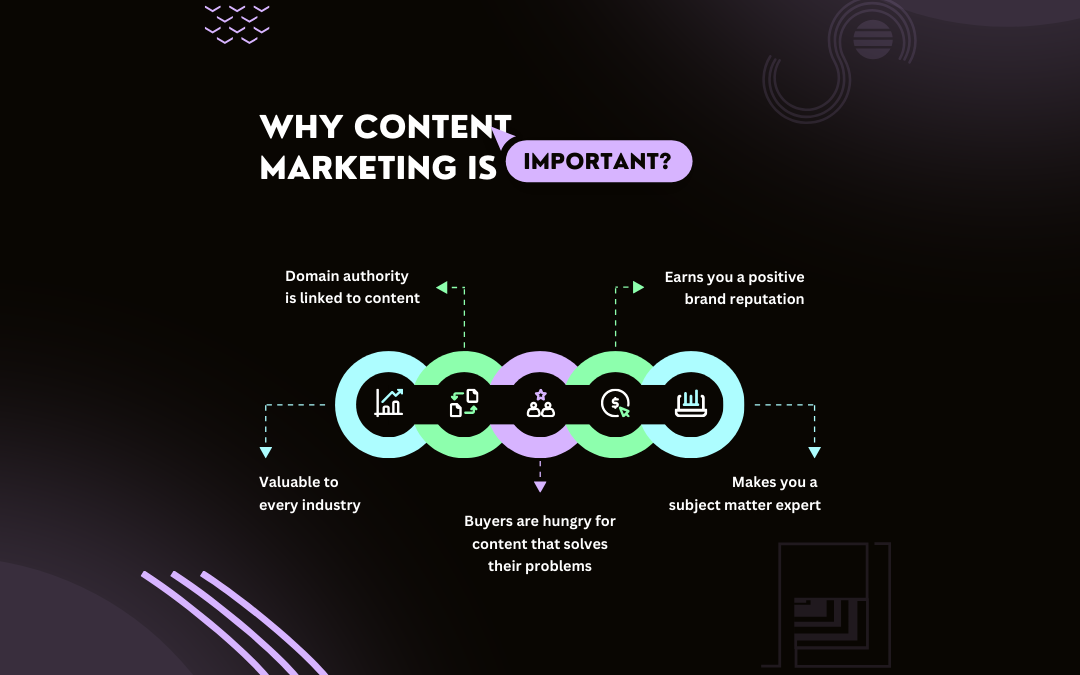Content Marketing for SEO
In the ever-evolving landscape of digital marketing, content has emerged as a potent tool for businesses seeking to improve their online visibility and rank higher in search engine results. Welcome to our comprehensive guide on “Content Marketing for SEO,” where we’ll dive deep into the strategies, tactics, and best practices that can help your website climb the search engine rankings and reach a broader audience.
Why Content Marketing Matters for SEO
Content marketing and SEO are intrinsically linked. High-quality content not only engages your audience but also signals to search engines that your website is a valuable resource. Here’s why content marketing is crucial for SEO:
1. Relevance and Freshness: Search engines favor websites that regularly produce fresh, relevant content. Consistently publishing new content keeps your site updated and attractive to search engine crawlers.
2. Keywords and Rankings: Content allows you to strategically incorporate keywords that your target audience uses to search for information. When done right, this can improve your rankings for these keywords.
3. User Experience: Well-crafted content enhances user experience by providing valuable information, answering questions, and solving problems. When users find what they’re looking for on your site, they’re more likely to stay longer and engage with your content.
4. Backlinks: High-quality content naturally attracts backlinks from other websites. These backlinks are a critical factor in search engine ranking algorithms.
Crafting Effective Content for SEO
Now that we understand the importance of content marketing for SEO, let’s explore how to create content that not only engages your audience but also ranks well in search results.
1. Keyword Research: Start by conducting thorough keyword research to identify the terms and phrases your target audience is searching for. Tools like Google Keyword Planner and SEMrush can help you find valuable keywords with reasonable search volume and competition.
2. High-Quality Content: Your content should be well-researched, informative, and written with your audience in mind. Avoid keyword stuffing and focus on providing real value.
3. Content Formats: Diversify your content formats to cater to different user preferences. Consider blog posts, infographics, videos, podcasts, and interactive content like quizzes and calculators.
4. On-Page SEO: Optimize your content for on-page SEO elements, including meta titles, meta descriptions, headers, and alt text for images. Ensure your content is well-structured and easy to read.
5. Long-Form Content: In many cases, long-form content (1,500 words or more) tends to perform better in search results. It allows you to cover topics comprehensively and demonstrate your expertise.
6. Internal Linking: Link to relevant pages within your website to guide users to related content and improve your site’s overall SEO.
7. Promote Sharing: Encourage readers to share your content on social media and other platforms. Social signals can indirectly impact your SEO.
Content Promotion and Distribution
Creating fantastic content is only the first step. You need to actively promote and distribute it to reach your target audience effectively.
1. Social Media: Share your content on your social media channels to increase its visibility and engage with your followers.
2. Email Marketing: Use email newsletters to promote your latest content to your subscribers.
3. Outreach: Reach out to influencers and industry experts who might be interested in sharing or linking to your content.
4. Guest Posting: Contribute guest posts to authoritative websites in your niche to build your brand’s authority and generate backlinks.
5. Content Syndication: Consider syndicating your content on reputable platforms to reach a broader audience.
Measuring and Iterating
To ensure the effectiveness of your content marketing efforts, it’s essential to track and measure your results continuously. Use tools like Google Analytics, Google Search Console, and SEO-specific platforms like Moz and Ahrefs to monitor:
1. Organic Traffic: Track how much traffic your content is generating from search engines.
2. Keyword Rankings: Monitor the rankings of target keywords associated with your content.
3. Engagement Metrics: Analyze user engagement metrics such as time on page, bounce rate, and social shares.
4. Conversion Rates: Measure how well your content is converting visitors into leads or customers.
Based on your data, iterate on your content strategy. Refine your keyword targeting, experiment with different content formats, and adjust your promotion tactics to improve your SEO performance over time.
Conclusion
Content marketing is an indispensable tool in the realm of SEO. By creating valuable, optimized content and promoting it effectively, you can enhance your website’s visibility, attract organic traffic, and ultimately achieve your online marketing goals. Remember that SEO and content marketing are long-term strategies, so be patient and stay committed to delivering high-quality content that resonates with your audience and search engines alike.


